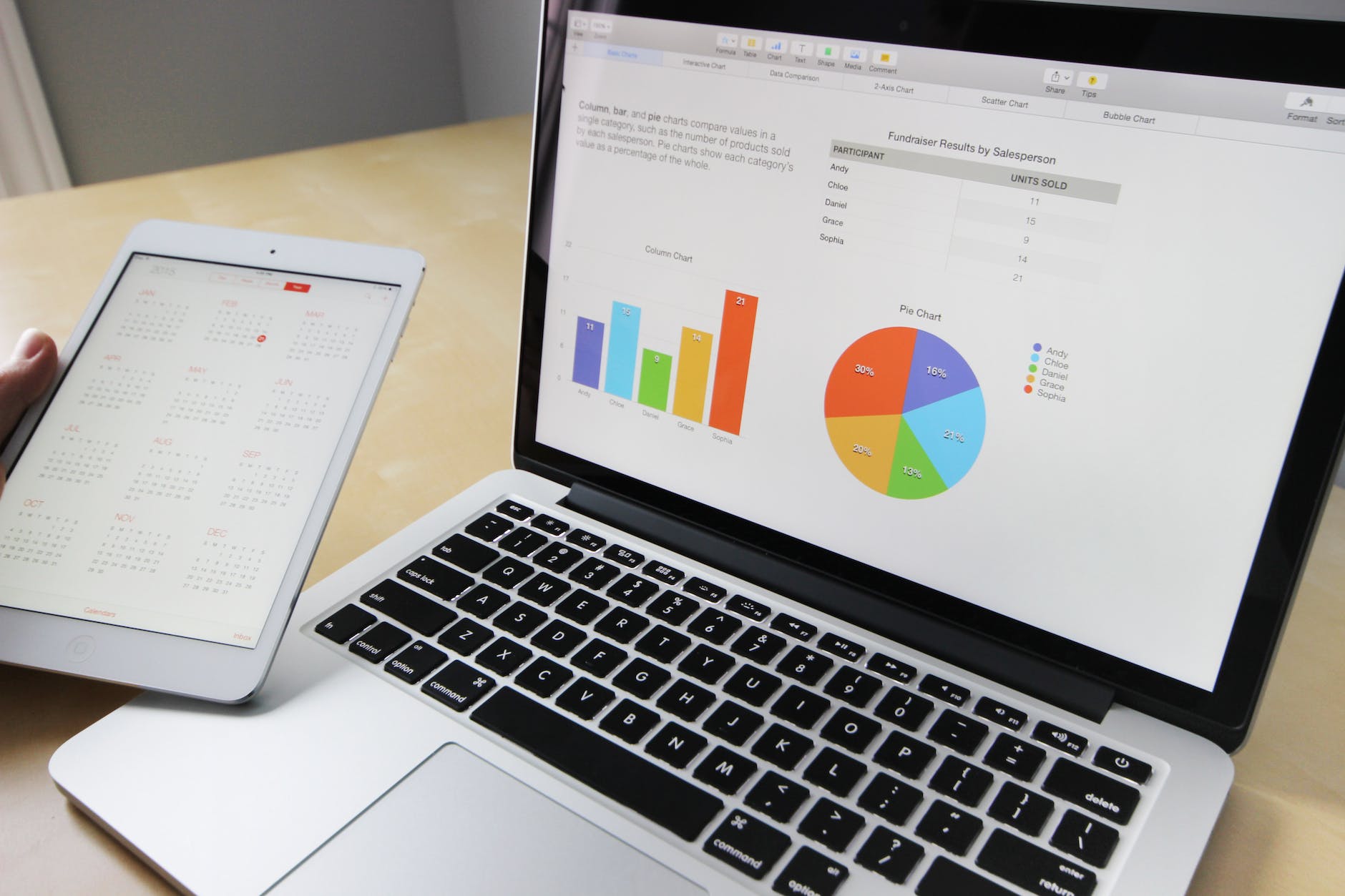
Photo by Pixabay on <a href="https://www.pexels.com/photo/business-charts-commerce-computer-265087/" rel="nofollow">Pexels.com</a>
Are you struggling to get your finances back on track? Do you feel like you’re constantly in debt and don’t know how to break free? You’re not alone. Millions of people are in the same boat. This comprehensive guide will walk you through everything you need to do to get yourself debt-free and regain control of your finances and cover topics such as creating a budget, building good credit, and investing for the future. So whether you’re just starting out or have been struggling for years, this guide has something for everyone!
Understand Your Debt
The first step to getting out of debt is understanding what kind of debt you have. There are two main types of debt: secured and unsecured. Secured debt is backed by collateral, such as a home or car. If you default on this type of loan, the lender can seize the asset that was used as collateral. Unsecured debt, on the other hand, is not backed by any asset. This includes credit card debt, medical bills, and other debt like Riverside Bail Bonds. If you default on an unsecured loan, the lender can’t take anything from you; they can only try to collect the money through legal means.
Now that you know the difference between secured and unsecured debt, it’s time to take a look at your debt situation. How much debt do you have? What is the interest rate on each loan? Are there any fees associated with the loans? Knowing this information will help you create a plan to get out of debt.
Also, take a look at your income and expenses. How much money do you bring in each month? How much do you spend? This will give you an idea of how much extra money you have each month to put towards debt repayment.
Make a Budget
Now that you know where you stand financially, it’s time to create a budget. A budget is a tool that will help you keep track of your income and expenses so that you can make informed decisions about how to spend your money.
To create a budget, start by listing all of your income sources and then all of your expenses. Be sure to include both fixed and variable expenses. Fixed expenses are those that stay the same each month, such as rent or mortgage payments. Variable expenses are those that can fluctuate, such as utility bills or groceries. Once you have all of your income and expense information down on paper, it’s time to start tracking!
There are many different ways to track your budget. You can use a pen and paper, a spreadsheet, or budgeting software. The key is to find a method that works for you and then stick with it. Once you have your budget created, it’s time to start making some changes. Look at your expenses and see where you can cut back. Maybe you can eat out less often or cancel your cable subscription. Every little bit helps!
Build Your Credit
One of the best things you can do for your financial health is to build good credit. Good credit will help you get lower interest rates on loans and can even qualify you for better jobs. There are a few different ways to build credit, but one of the most effective is by using a credit card responsibly.
When using a credit card, be sure to make your payments on time and in full each month. This will show creditors that you’re responsible for debt and can help improve your credit score over time. Another way to build credit is by taking out a small loan from a lending institution and then making timely payments. This will also help improve your credit score. Building good credit takes time, but it’s worth the effort. Good credit can save you thousands of dollars over the course of your lifetime.
Invest in Your Future
Once you’ve gotten your debt under control, it’s time to start thinking about the future. One of the best ways to do this is by investing in yourself. For example, investing in your education or career can pay off big time down the road. However, if you’re not sure where to start, consider meeting with a financial advisor. They can help you create a plan that fits your unique situation.
You can also start investing in your future by saving for retirement. Even if you’re young, it’s never too early to start saving. The sooner you start, the more time your money has to grow. There are many different ways to save for retirement, so be sure to do some research and find a method that works for you.
The third type of investment you can make is in your health. Investing in your health now can help you avoid costly medical bills down the road. Consider quitting smoking, eating healthy, and exercising regularly. These simple lifestyle changes can have a significant impact on your overall health and well-being.
Live Within Your Means
One of the best pieces of financial advice is to live within your means. In other words, don’t spend more money than you have. This may seem like common sense, but it’s amazing how many people live beyond their means. Just because you can afford something doesn’t mean you should buy it. If you’re not able to pay for something in cash, then you probably can’t afford it.
It’s also important to remember that your income is not unlimited. Just because you got a raise or bonus at work doesn’t mean you should start spending more money. On the contrary, it’s important to save this extra money so that you have it when unexpected expenses arise. Living within your means can be difficult, but it’s one of the most important things you can do for your financial health. It may take some time to adjust your spending habits, but it will be worth it in the long run.
Also, try to avoid using credit cards unless it’s absolutely necessary. Credit cards can be a helpful tool, but they can also lead to debt if you’re not careful. If you do use a credit card, be sure to pay off your balance in full each month. This will help you avoid interest charges and keep your debt under control.
Work with a financial advisor
A financial advisor can help you create a budget, invest for the future, and make smart financial decisions. If you’re not sure where to start, consider meeting with a financial advisor. They can help you create a plan that fits your unique situation.
Working with a financial advisor is a great way to get your finances on track. They can help you set goals and develop a plan to reach those goals. They can also offer advice on investments, retirement planning, and saving for college.
In addition, try to find an advisor who is a fiduciary. This means that they are legally required to act in your best interest. They should also be fee-only, which means that they don’t earn commissions on the products they sell you. When meeting with a financial advisor, be sure to ask about their qualifications and experience. It would be best if you also asked about their fees and how they are paid. Be sure to get all of this information in writing before you make any decisions.
In conclusion, getting your finances back on track can seem like a daunting task. However, it’s important to remember that you’re not alone. There are many resources available to help you get your finances back on track. These tips can help you get started on the path to financial success.


